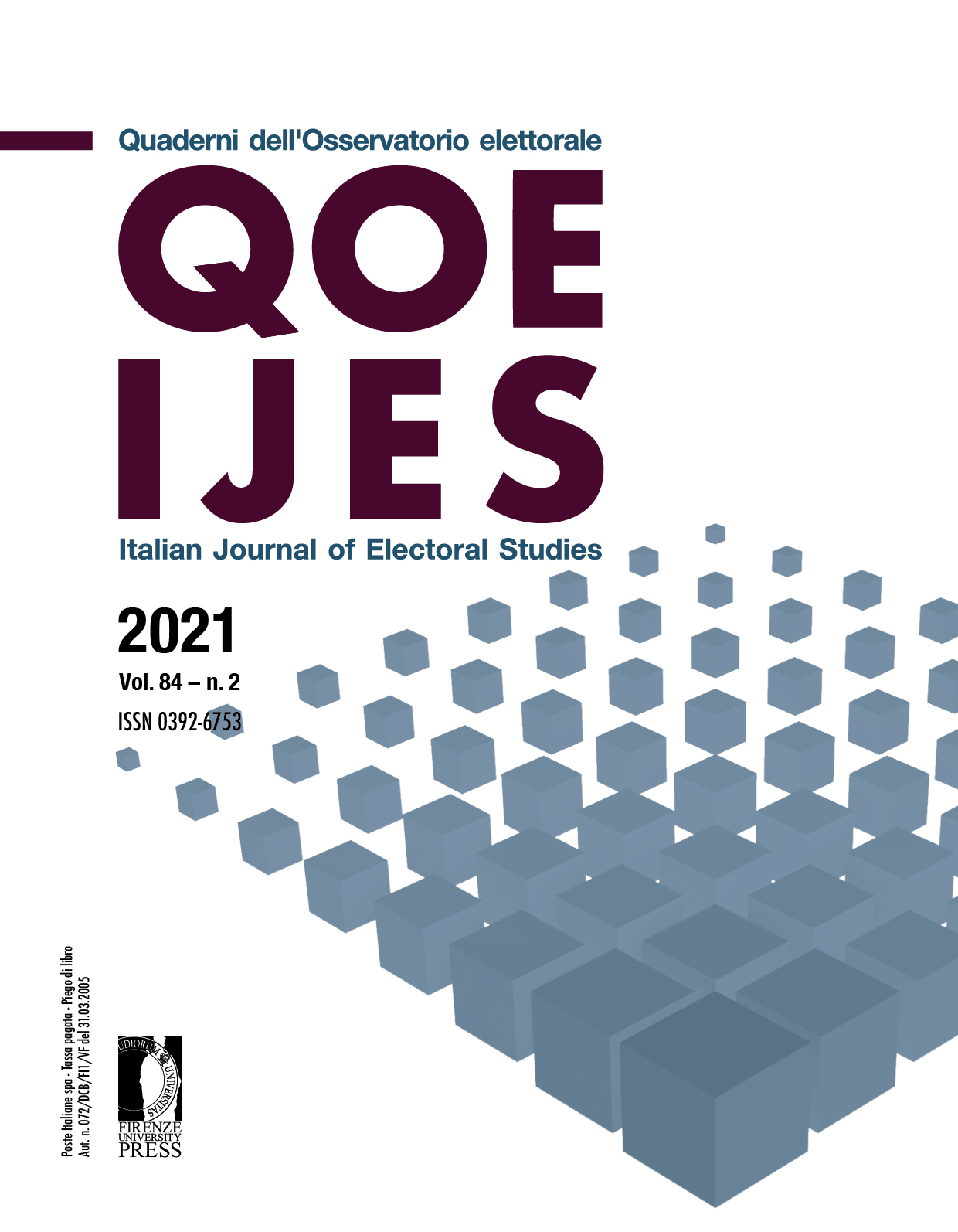Vol 84, No 2 (2021): Italy in times of protest and negative voting
Issue Description
Italy in times of protest and negative voting, a Special Issue with Gianluca Passarelli and Diego Garzia as Guest Editors, aims at analysing and measuring the impact of protest/negative voting in Italy between 2016 and 2020, a period in which protest parties’ success and voters’ discontent have significantly increased.
Dario Tuorto stresses the transformation of politics in contemporary democracies that led to the emergence of a new ideological conflict, alongside the traditional left-right divide, described as liberal–authoritarian or cosmopolitan–nationalist cleavage.
Gianluca Passarelli and Matthew Bergman argue that referenda can provide an opportunity for voters to express political and economic grievances but also offer additional ways to support parties they vote for in elections. Alternatively, referenda can also give voters a chance to express their policy references in a way that does not affect which party will lead the government. Findings show that referendum-specific factors had the strongest explanatory power followed by those related to government approval. The results contribute to the studies on second-order elections where voters are allowed for greater expressive preferences.
Fabio Bordignon and Luigino Ceccarini investigate voters’ reactions to the different paths taken by the three main protagonists of the 2016-2020 Italian populist wave: the M5S, the Lega, and FDI, showing how some specific dynamics have largely favoured parties of the populist right – the Lega and then especially FDI – which have preserved or even reinforced their electoral profile as antiestablishment parties.
Mauro Bertolotti, Claudia Leone and Patrizia Catellani focus on the individual psychological factors associated with populist attitudes, and to how those can influence political decisions, such as vote choice in an election or referendum. They find that voters with strong populist attitudes were more likely to engage in motivated reasoning in the form of a biased evaluation of the foreseeability of the referendum results, making simplified and self-reassuring evaluations aligned with their vote choice.
Giuliano Bobba, Moreno Mancosu, Franca Roncarolo, Antonella Seddone and Federico Vegetti investigate whether a winner-loser effect conditions people’s concerns about the Covid-19 pandemic. The results show that losing an election, albeit a second-order one, can affect citizens’ outlook on future events in domains that are largely beyond political control.
Enjoy your scientific reading!

